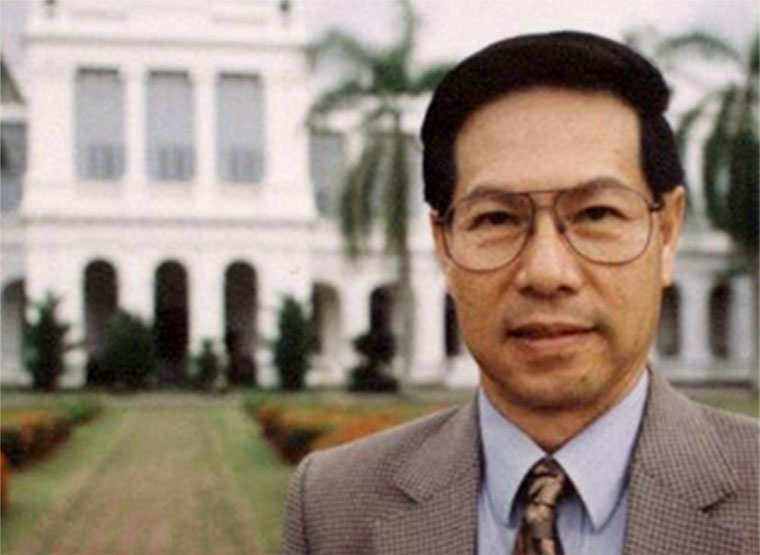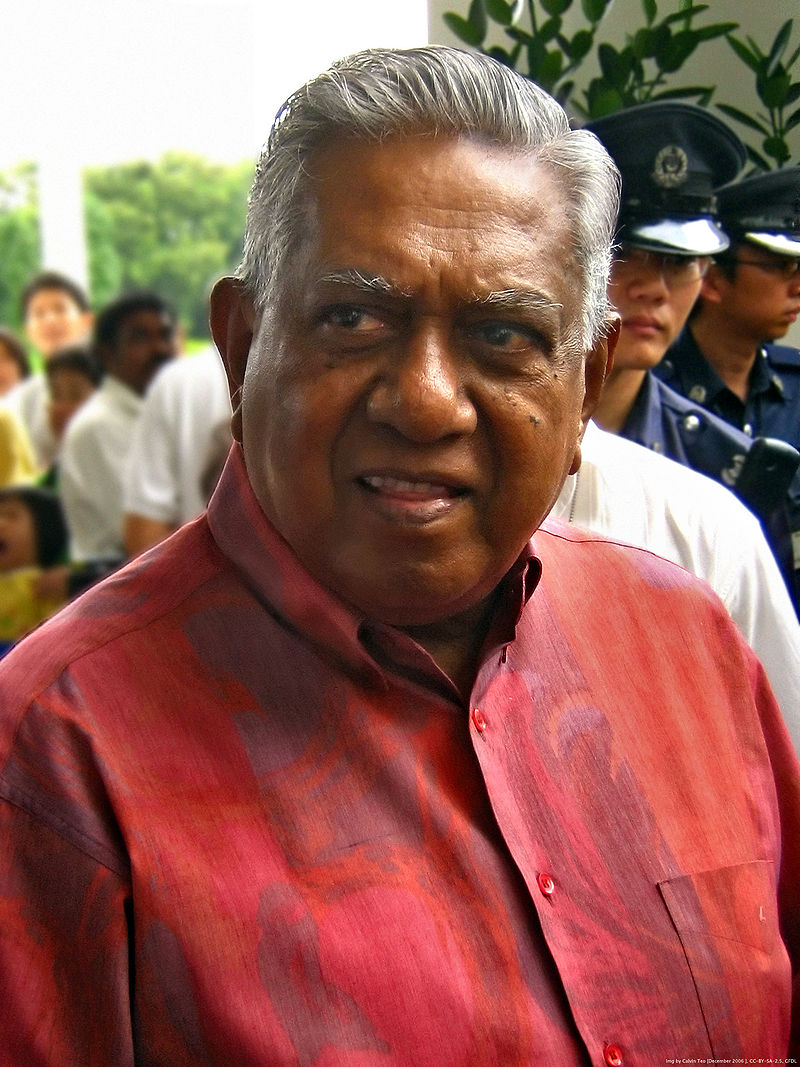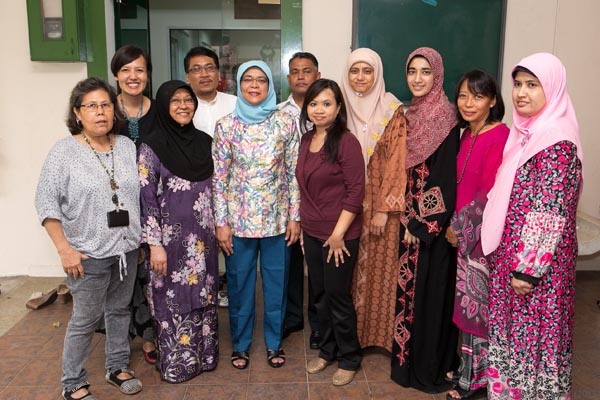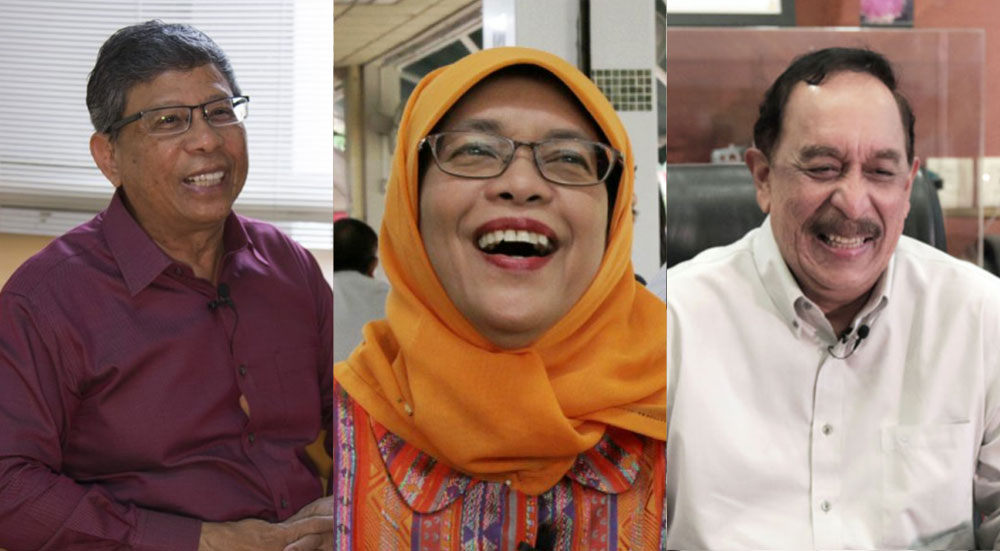Nomination Day for the scheduled Presidential Election 2017 is on Sept. 13, 2017.
Here's a primer on the Elected Presidency, so you'll sound a lot smarter discussing the possibility of a walkover with your friends and family.
You're welcome.
From Yang-di-Pertuan to President via appointment
Before we had Presidents, Singapore's highest political office was the Yang-di-Pertuan Negara, or Head of State.
Our first Yang-di-Pertuan Negara was then Governor of Singapore, William Goode, for six months before Yusof Ishak took up the post in December 1959.
 Swearing in of Yusof Ishak as Singapore's first local Yang di Pertuan Negara. Source.
Swearing in of Yusof Ishak as Singapore's first local Yang di Pertuan Negara. Source.
During Yusof Ishak’s inauguration, then Prime Minister Lee Kuan Yew (LKY) described the Yang-di-Pertuan as:
...the personification of the State of which you and I are members.....[Collective leadership in the form of the elected Government] is an abstract concept, and cannot easily invoke mass enthusiasm and loyalties. So over and above this collective leadership of the elected Government, is the titular Head of the State. He symbolises all of us.
When Singapore gained independence in 1965, the role of Yang-di-Pertuan was changed to that of President.
Similar to the Yang-di-Pertuan, the role of President of Singapore is largely a symbolic role. Other than that, the President has the (limited) powers to, among other things, appoint a Member of Parliament (MP), Prime Minister (PM), and dissolve parliament.
The roles that the public usually sees him in are those that are more ceremonial (think National Day Parade) and relating to international diplomacy.
Close to 20 years later, the idea to transform the Presidency into an elected office was mooted by LKY.
[related_story]
Why do we need to elect a President?
Simply put, Singapore has a lot of money. So much money that we don't even know how much, unless we use up a lot of man-hours to compute it.
[caption id="" align="aligncenter" width="500"] Via giphy[/caption]
Via giphy[/caption]
Having so much money available to the government of the day is dangerous, especially if politicians decides to spend it all on free healthcare rogue politicians get into Parliament and spend all the hard-earned money.
According to Lee at his 1984 National Day Rally, the President is the best person to make sure that this money is safe. Furthermore, the President should be someone that the electorate elects so that he has the moral support of the people.
Implementation of the Elected Presidency
The Presidency was changed to an elected office with added powers to protect the reserves after the release of two government White Papers on the issue were released by the government in 1988 and 1990.
Since the changes were implemented in 1991, midway through President Wee Kim Wee's term, he was the first President to exercise the powers of an Elected President.
Following that, the first Presidential Election, which Ong Teng Cheong won, was held in 1993.
[caption id="" align="aligncenter" width="592"] Ong Teng Cheong. Image via[/caption]
Ong Teng Cheong. Image via[/caption]
The elections in 1999 and 2005 were uncontested, and S R Nathan served as the Elected President for 12 years.
[caption id="" align="aligncenter" width="465"] S R Nathan. Source: Wikipedia[/caption]
S R Nathan. Source: Wikipedia[/caption]
But times changed, and Presidential Election 2011 saw an unprecedented four-way contest, which served as a sign that more hopefuls could actually meet the 20-year-old eligibility criteria to run for office.
 Tony Tan, Tan Cheng Bock, Tan Jee Say, Tan Kin Lian. Source: Wikipedia
Tony Tan, Tan Cheng Bock, Tan Jee Say, Tan Kin Lian. Source: Wikipedia
This prompted the need to relook the qualifying criteria for presidential candidates, which seemed outdated to the government.
So, the Constitutional Commission was convened and changes were recommended on the Elected Presidency, which the government largely accepted in November 2016.
Read: Everything you need to know from PM Lee’s 24-page speech on Elected Presidency in 60 seconds
[related_story]
Updates to the eligibility criteria for the post of President
Unfortunately, for President-wannabes out there, there is no chance of ever occupying the Istana, unless you happen to have served for three years in the last 20 years in the below capacities:
- Minister
- Chief Justice
- Speaker of Parliament
- Attorney-General
- Chairman of Public Service Commission
- Auditor-General
- Accountant-General
- Permanent Secretary
- Chief Executive of a Fifth Schedule entity (a Statutory Board or company which has its reserves protected under the reserves protection framework). Examples are CPF, HDB, JTC, MAS, GIC, GIC Pte Ltd, Temasek Holdings (Pte) Ltd.
- Chief Executive of a company with at least $500 million in shareholders' equity.
 Only one of them can be President. Source.
Only one of them can be President. Source.
For applicants who don't satisfy the working experience required above, he/she must satisfy the Presidential Elections Committee that he/she has the experience and ability comparable to the positions listed above.
Reserved elections
Singapore has had one Indian and three Chinese presidents since the Elected Presidency became a thing.
And 47 years have passed since the country saw its last Malay President -- Yusof Ishak.
So, the government accepted the Constitution Commission's recommendation to introduce hiatus-triggered reserved elections to ensure that there will be a President from a minority community if that community has not been represented as President for five terms.
Presidential Election 2017 is reserved for Malays, the first instance of the hiatus-triggered election.
It may well be a walkover, but one of these folks will become Singapore's next President.
[caption id="" align="aligncenter" width="1000"] Who will be the next President?[/caption]
Who will be the next President?[/caption]
Top photo from National Archives.
If you like what you read, follow us on Facebook, Instagram, Twitter and Telegram to get the latest updates.


